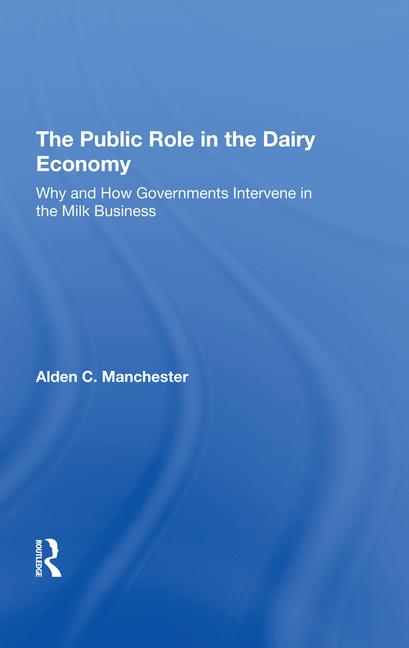Lab Talk: Green Tea: The "In" Iced Tea
You have read it here before: fluid milk processors are very well suited to produce some of the highest-quality iced tea drinks around. There’s something important for dairies to know-the iced tea category has become extremely competitive, as tea has a healthful halo that more and more consumers are becoming aware of.

You have read it here before: fluid milk processors are very well suited to produce some of the highest-quality iced tea drinks around. There’s something important for dairies to know-the iced tea category has become extremely competitive, as tea has a healthful halo that more and more consumers are becoming aware of.
Even after FDA refused a petition in May 2006 that would have allowed manufacturers of green tea to display labeling linking consumption of the popular ancient brew to a reduction in the risk for cardiovascular disease, all types of marketers continue to introduce innovative ready-to-drink beverage formulations based on green tea.
In FDA’s rejection letter to Japanese-based Ito En Ltd., a leading manufacturer and importer of green tea products, the agency states that “there is no credible scientific evidence to support qualified health claims about consumption of green tea or green tea extract and a reduction of a number of risk factors associated with cardiovascular disease.” This came after FDA reviewed nearly 150 scientific studies on green tea. The agency’s action does not imply that green tea is dangerous or unhealthful; merely that it did not find scientific evidence that green tea reduces the risk of cardiovascular disease. In 2005, FDA rejected a similar petition claiming that green tea reduced the risk of cancer.
Green tea is brewed from the leaves of Camellia sinensis, the same leaves that make black and oolong tea. The difference is that green tea is made from unfermented tea leaves.
Nevertheless, this has not stopped beverage marketers from formulating with green tea. In fact, the belief that drinking green tea confers health benefits has never been stronger amongst Americans, a population that is increasingly seeking out health and wellness foods and beverages.
One of the trends occurring with green tea beverages is touting proprietary formulations that assist with increasing energy…and even with burning calories. They are low- or no-calorie, sometimes slightly carbonated and often even come in flavors.
For example, at the beginning of February, retailers across the country started stocking Enviga, the sparkling green tea claiming to burn calories. The drink is the brainchild of Beverage Partners Worldwide, a joint venture of Nestlé S.A., Vevey, Switzerland, and The Coca-Cola Co., Atlanta.
 “Enviga represents the perfect partnership of science and nature, providing an optimum blend of green tea extracts called epigallocatechin gallate (EGCG) and caffeine,” says Rhona Applebaum, chief scientist at Coca-Cola. “Enviga is designed to work with your body to increase calorie burning. It creates a negative calorie effect-in other words, you burn more calories than you get from drinking it. We believe consumers are smart and understand that Enviga is designed to complement, not replace, regular exercise, a sensible diet and other healthy choices they make throughout the day.”
“Enviga represents the perfect partnership of science and nature, providing an optimum blend of green tea extracts called epigallocatechin gallate (EGCG) and caffeine,” says Rhona Applebaum, chief scientist at Coca-Cola. “Enviga is designed to work with your body to increase calorie burning. It creates a negative calorie effect-in other words, you burn more calories than you get from drinking it. We believe consumers are smart and understand that Enviga is designed to complement, not replace, regular exercise, a sensible diet and other healthy choices they make throughout the day.”
The Nestlé Research Center (NRC) in Lausanne, Switzerland, has long studied the properties and benefits of green tea as part of its extensive global tea business. A recent study conducted by the University of Lausanne in cooperation with NRC revealed that consuming the equivalent of three Enviga cans over the course of the day resulted in an increase in calorie burning.
“The accumulated body of scientific research shows that a combination of caffeine and green tea extract high in EGCG invigorates metabolism to gently increase energy use,” says Nestlé researcher Hilary Green.
Studies have shown that when EGCG and caffeine are present at the levels comparable to that in three cans of Enviga, healthy subjects in the lean to normal weight range can experience an average increase in calorie burning by 60 to 100 calories.
EGCG is a naturally occurring antioxidant in tea, including green tea. Enviga provides 90mg of EGCG in each serving, along with 20% of the Daily Value for calcium.
“We’ve seen a shift in consumers’ attitudes toward health and wellness, with more consumers seeking product choices that support healthy lifestyles and fit into their daily routine,” says Jason Warner, v.p., functional beverages, Beverage Partners Worldwide. Enviga comes in three flavors: Green Tea, Berry and Peach. It is sold in individual 12-oz sleek cans, as well as six-can and 12-can multi-packs.
My dear dairy friends, please ponder this product concept for a moment. You can make a similar product, too. The fact that each can of Enviga contains 200mg of calcium, making it a good source of this bone-building nutrient inherent to milk should be motivation for you to formulate a product to compete with Enviga.
By the way, I have tasted Enviga. It’s good. So you have to shoot for parity or better during your sensory testing stage.

Donna Berry
You have read it here before: fluid milk processors are very well suited to produce some of the highest-quality iced tea drinks around. There’s something important for dairies to know-the iced tea category has become extremely competitive, as tea has a healthful halo that more and more consumers are becoming aware of.
Even after FDA refused a petition in May 2006 that would have allowed manufacturers of green tea to display labeling linking consumption of the popular ancient brew to a reduction in the risk for cardiovascular disease, all types of marketers continue to introduce innovative ready-to-drink beverage formulations based on green tea.
In FDA’s rejection letter to Japanese-based Ito En Ltd., a leading manufacturer and importer of green tea products, the agency states that “there is no credible scientific evidence to support qualified health claims about consumption of green tea or green tea extract and a reduction of a number of risk factors associated with cardiovascular disease.” This came after FDA reviewed nearly 150 scientific studies on green tea. The agency’s action does not imply that green tea is dangerous or unhealthful; merely that it did not find scientific evidence that green tea reduces the risk of cardiovascular disease. In 2005, FDA rejected a similar petition claiming that green tea reduced the risk of cancer.
Green tea is brewed from the leaves of Camellia sinensis, the same leaves that make black and oolong tea. The difference is that green tea is made from unfermented tea leaves.
Nevertheless, this has not stopped beverage marketers from formulating with green tea. In fact, the belief that drinking green tea confers health benefits has never been stronger amongst Americans, a population that is increasingly seeking out health and wellness foods and beverages.
One of the trends occurring with green tea beverages is touting proprietary formulations that assist with increasing energy…and even with burning calories. They are low- or no-calorie, sometimes slightly carbonated and often even come in flavors.
For example, at the beginning of February, retailers across the country started stocking Enviga, the sparkling green tea claiming to burn calories. The drink is the brainchild of Beverage Partners Worldwide, a joint venture of Nestlé S.A., Vevey, Switzerland, and The Coca-Cola Co., Atlanta.

The Nestlé Research Center (NRC) in Lausanne, Switzerland, has long studied the properties and benefits of green tea as part of its extensive global tea business. A recent study conducted by the University of Lausanne in cooperation with NRC revealed that consuming the equivalent of three Enviga cans over the course of the day resulted in an increase in calorie burning.
“The accumulated body of scientific research shows that a combination of caffeine and green tea extract high in EGCG invigorates metabolism to gently increase energy use,” says Nestlé researcher Hilary Green.
Studies have shown that when EGCG and caffeine are present at the levels comparable to that in three cans of Enviga, healthy subjects in the lean to normal weight range can experience an average increase in calorie burning by 60 to 100 calories.
EGCG is a naturally occurring antioxidant in tea, including green tea. Enviga provides 90mg of EGCG in each serving, along with 20% of the Daily Value for calcium.
“We’ve seen a shift in consumers’ attitudes toward health and wellness, with more consumers seeking product choices that support healthy lifestyles and fit into their daily routine,” says Jason Warner, v.p., functional beverages, Beverage Partners Worldwide. Enviga comes in three flavors: Green Tea, Berry and Peach. It is sold in individual 12-oz sleek cans, as well as six-can and 12-can multi-packs.
My dear dairy friends, please ponder this product concept for a moment. You can make a similar product, too. The fact that each can of Enviga contains 200mg of calcium, making it a good source of this bone-building nutrient inherent to milk should be motivation for you to formulate a product to compete with Enviga.
By the way, I have tasted Enviga. It’s good. So you have to shoot for parity or better during your sensory testing stage.
Looking for a reprint of this article?
From high-res PDFs to custom plaques, order your copy today!





